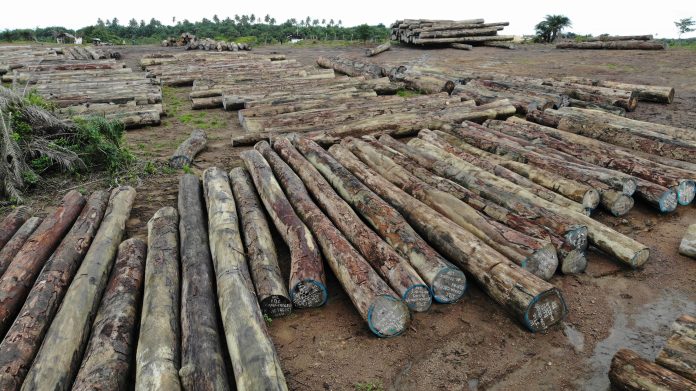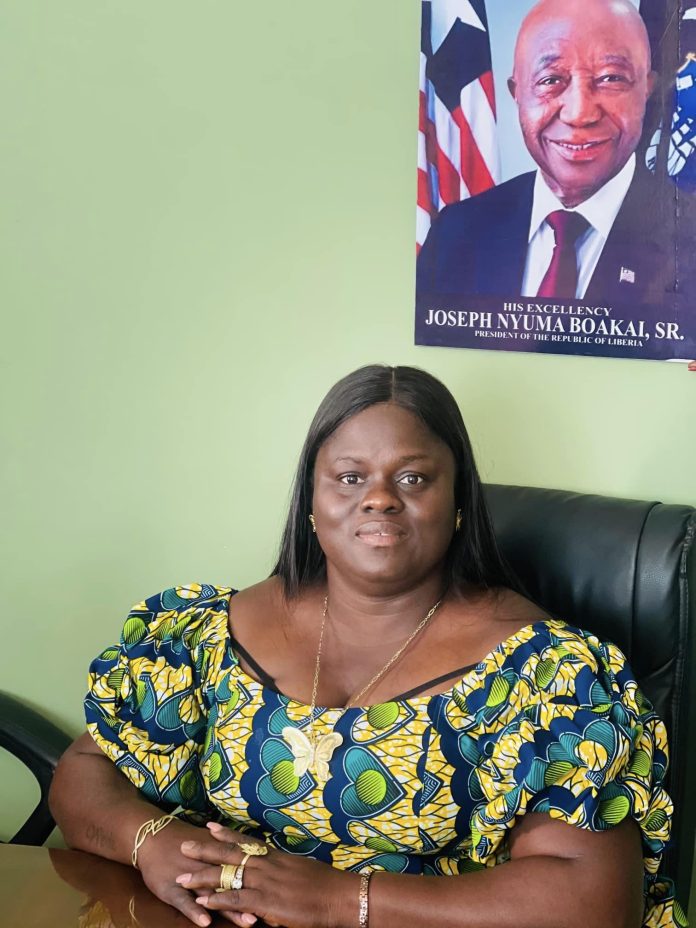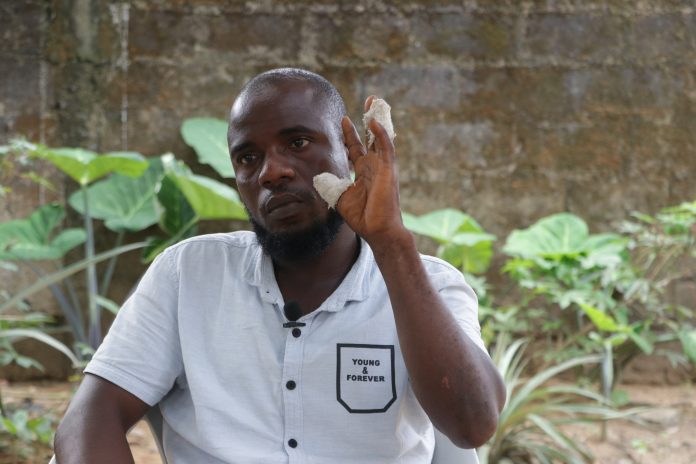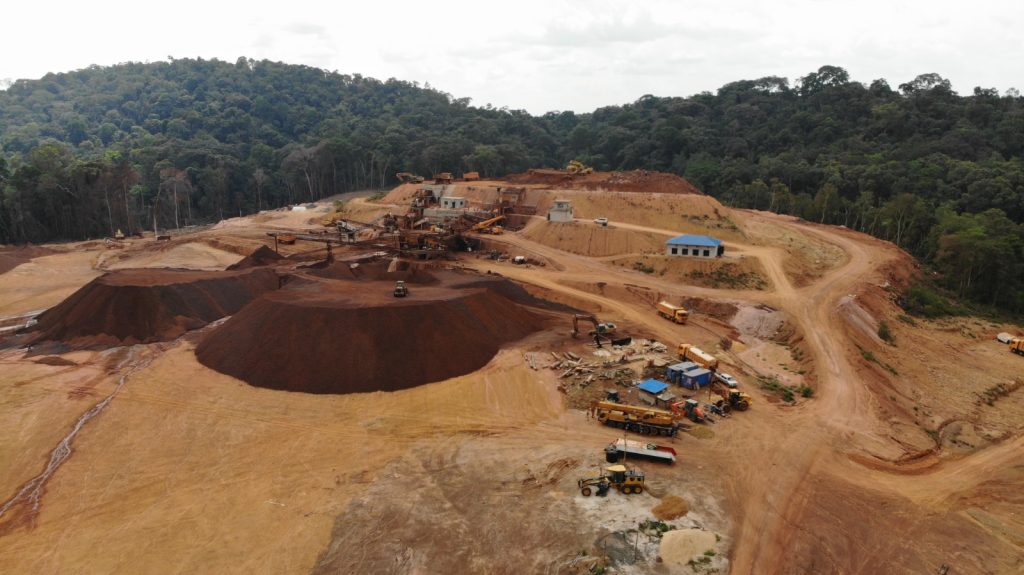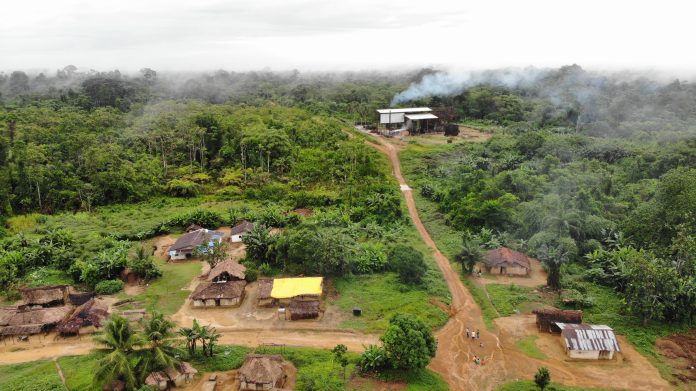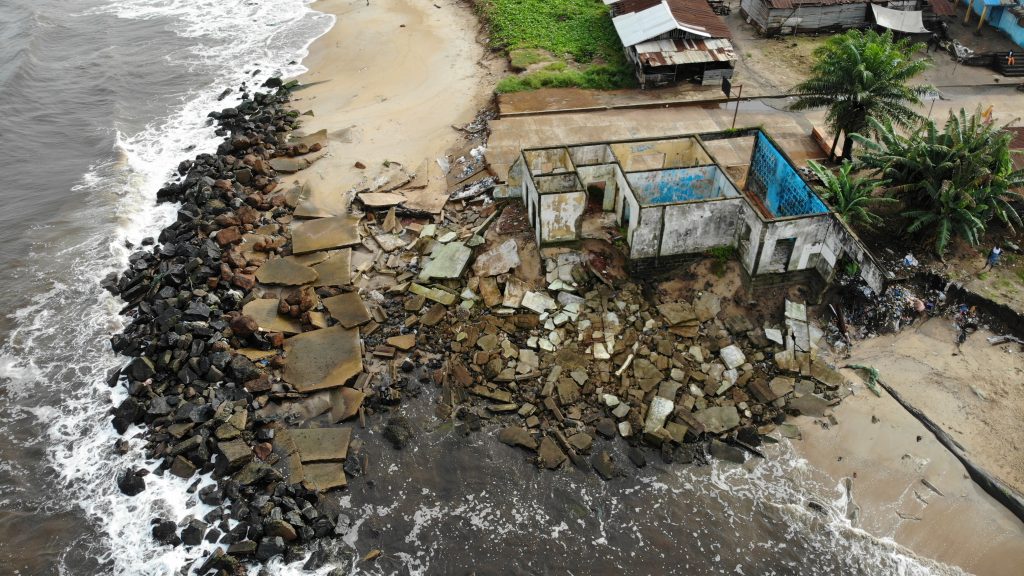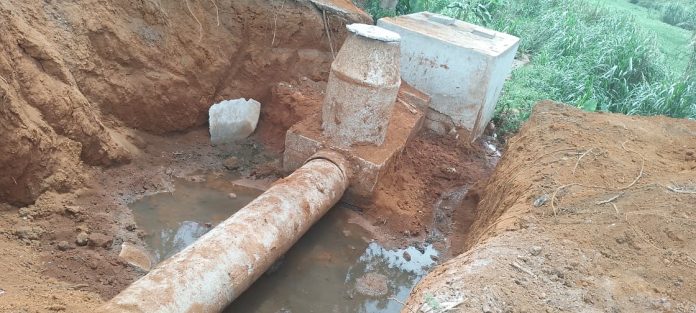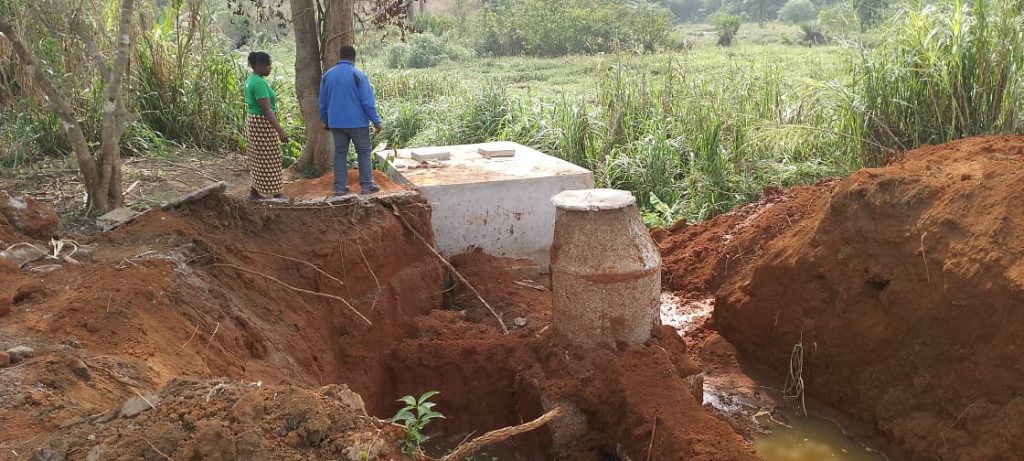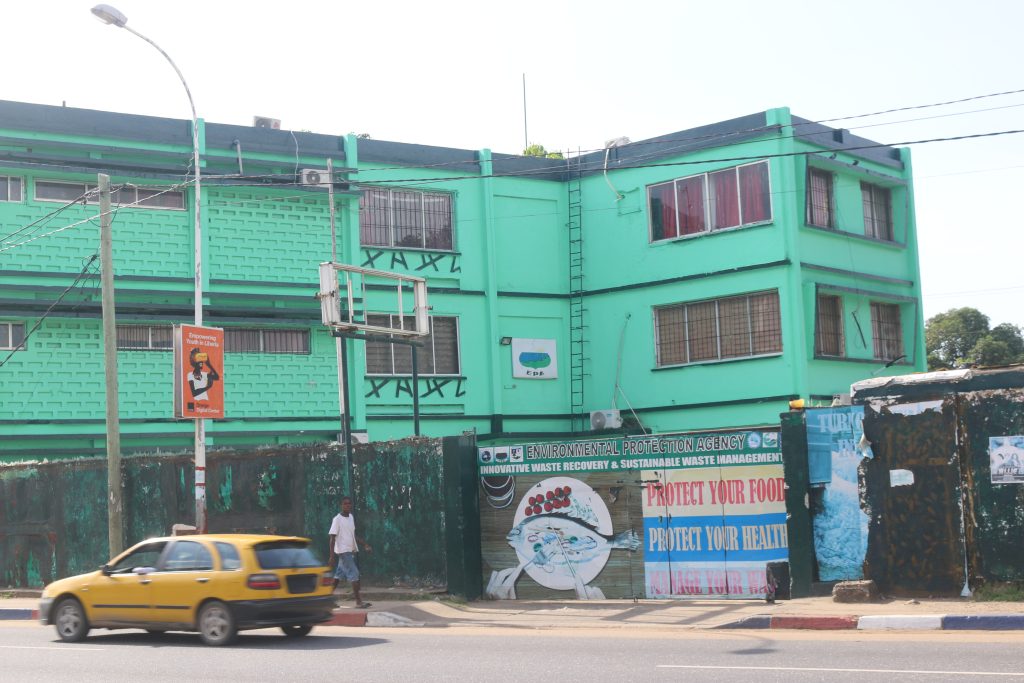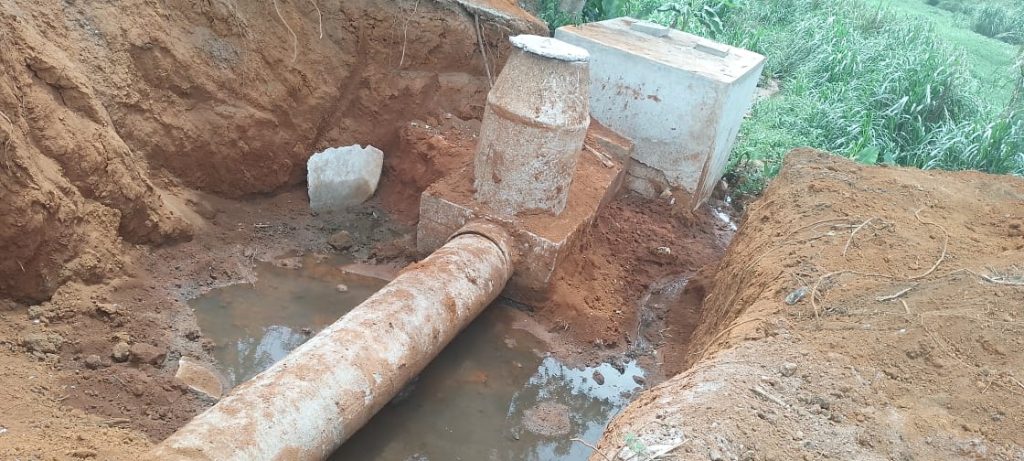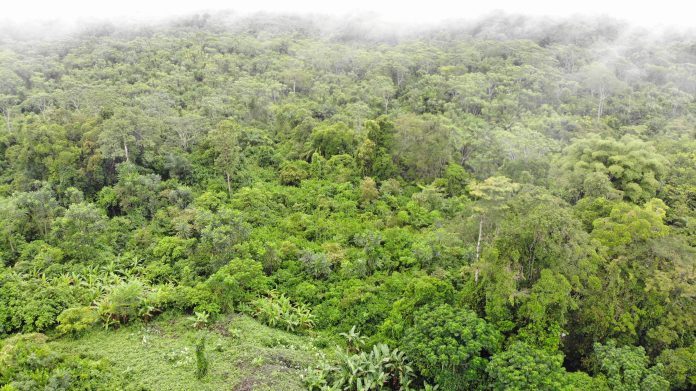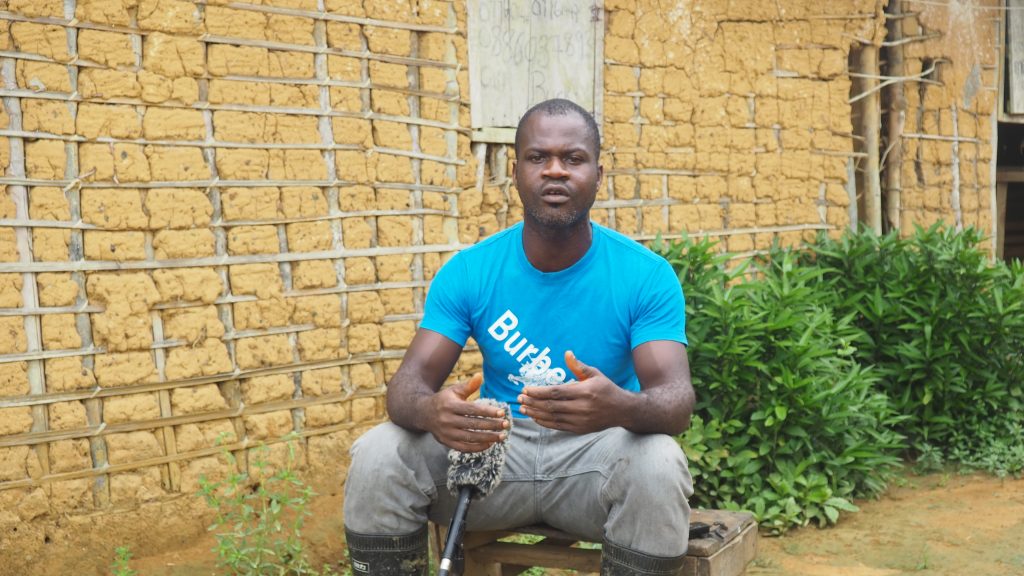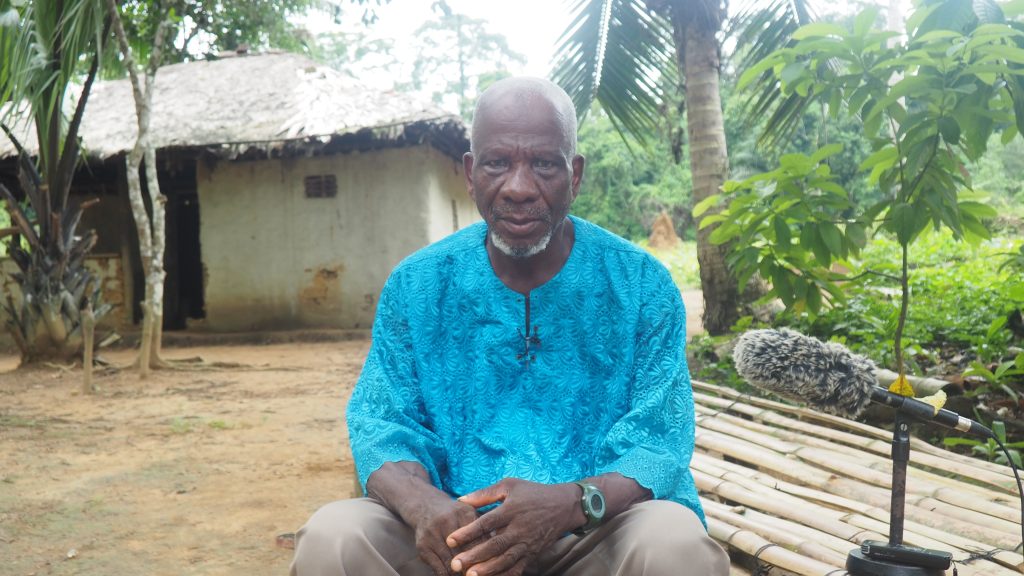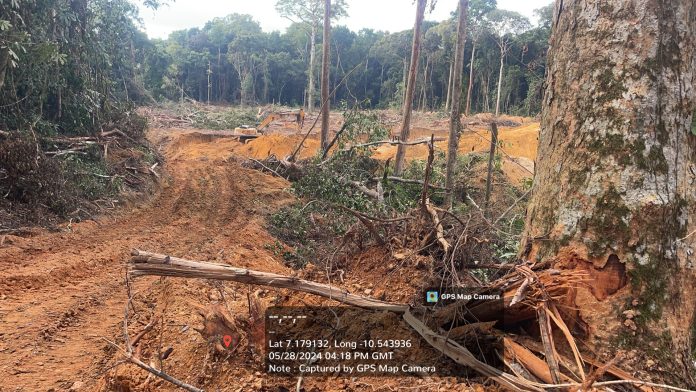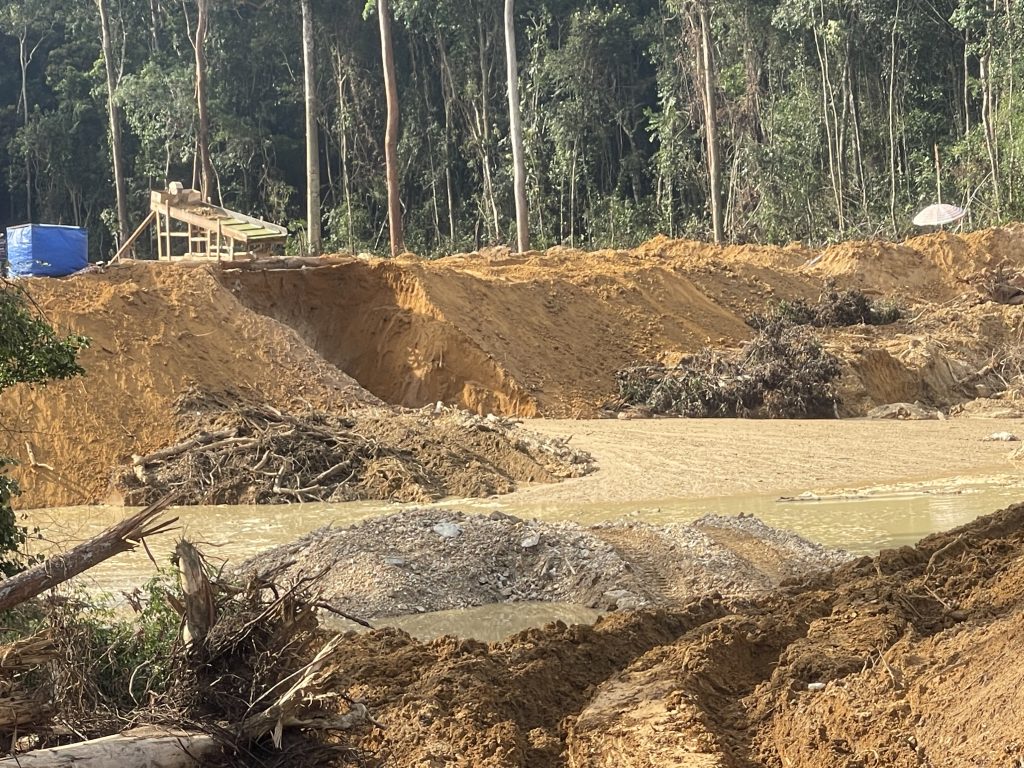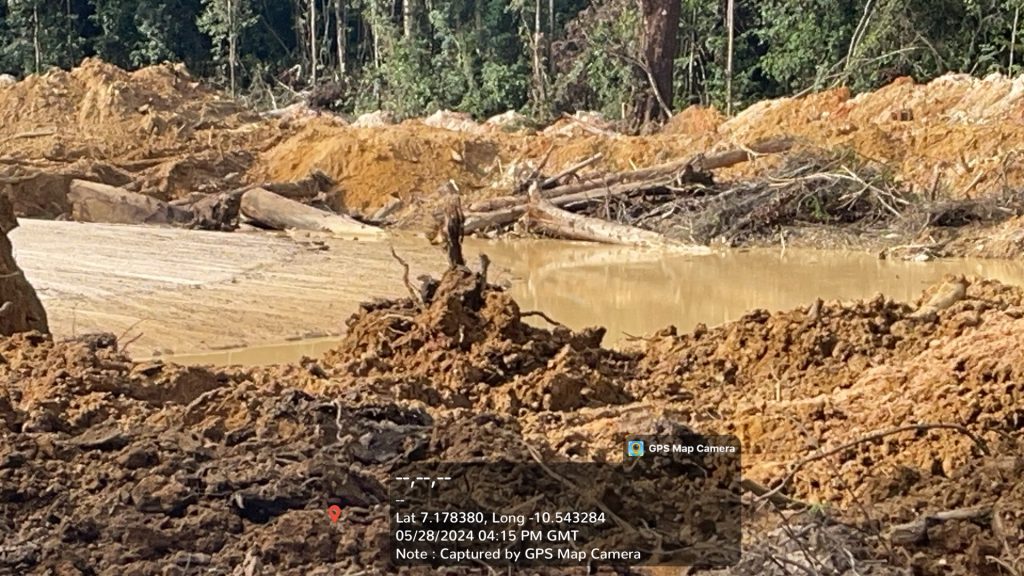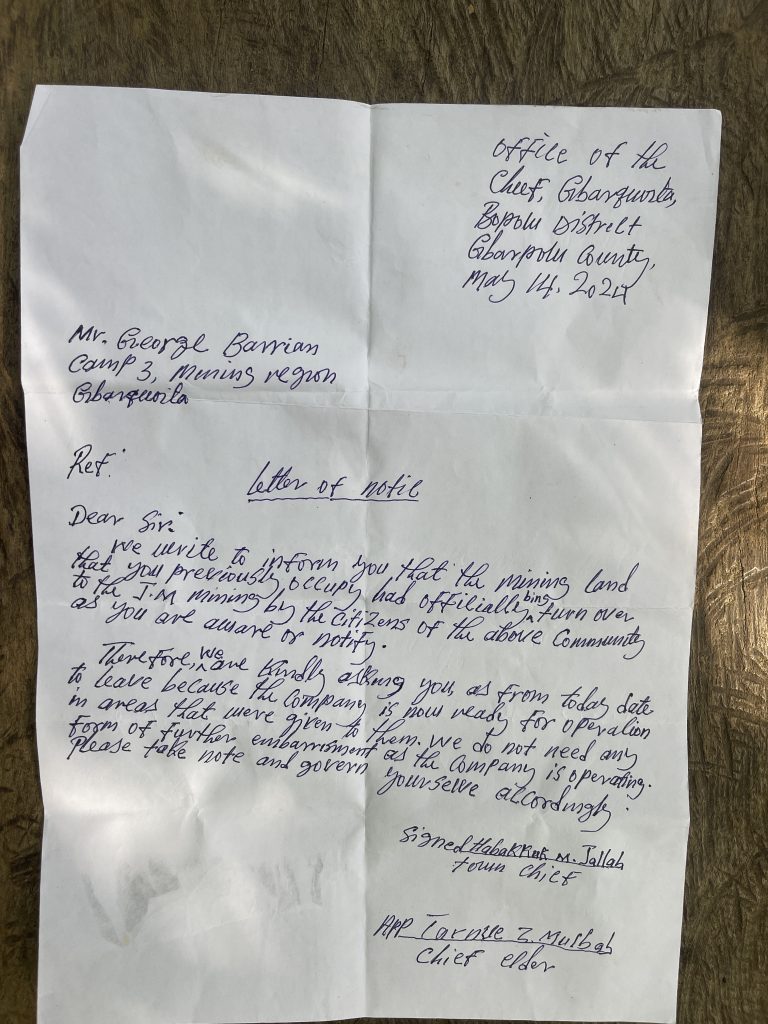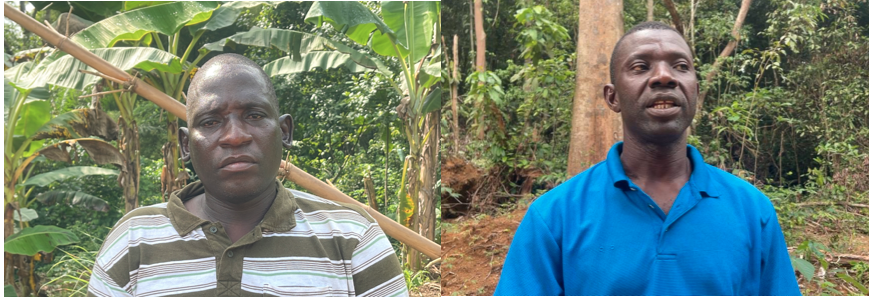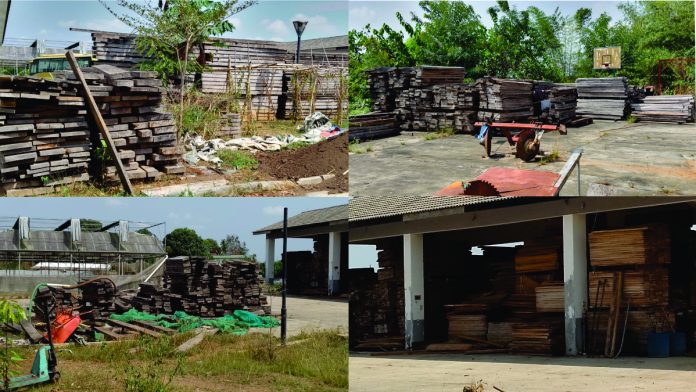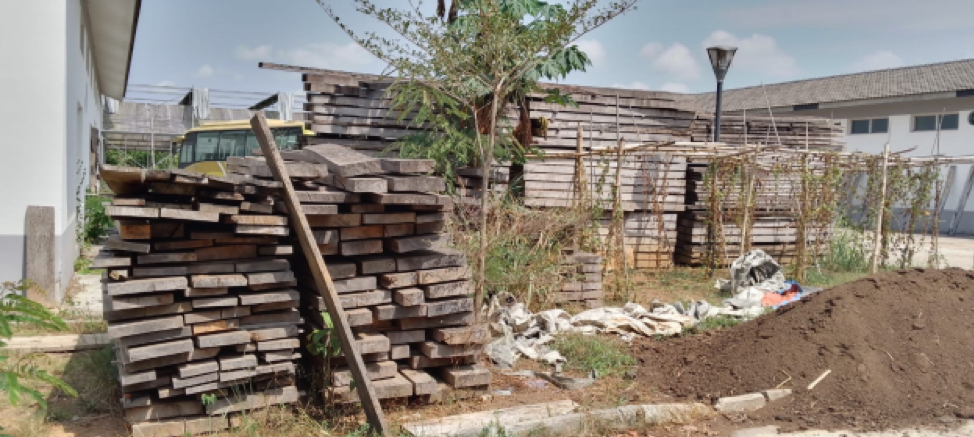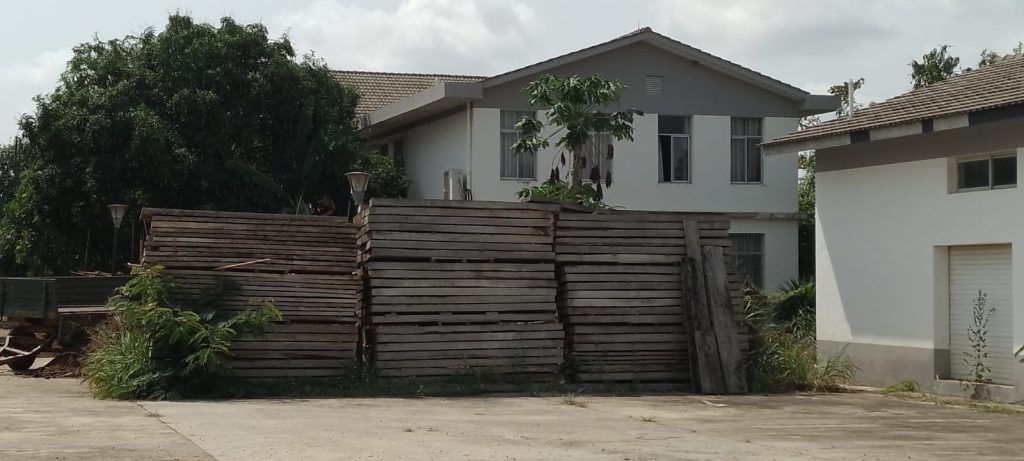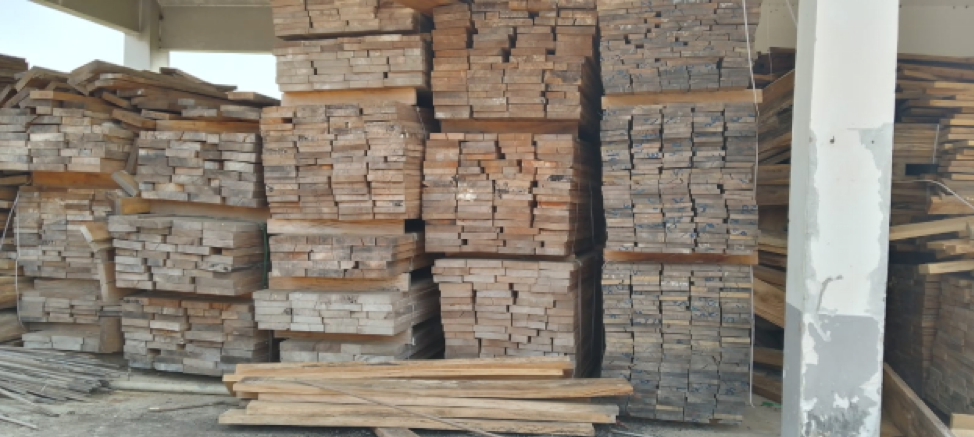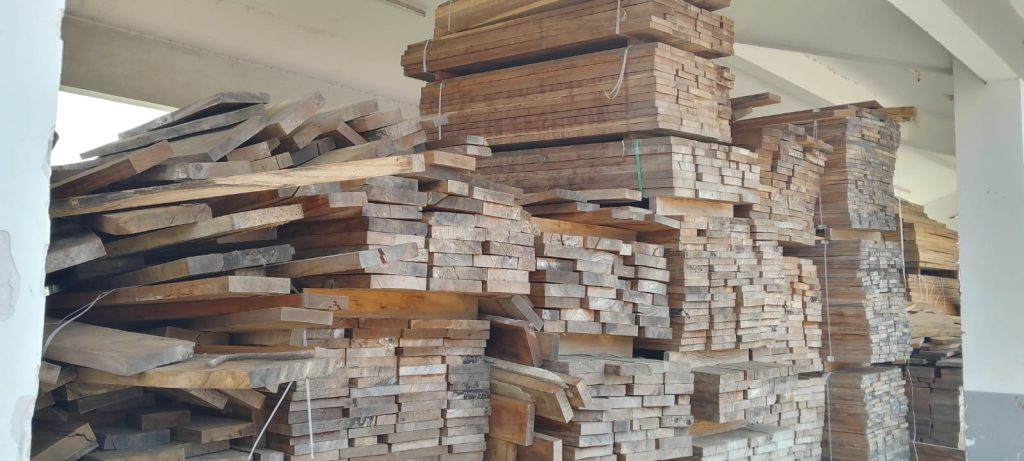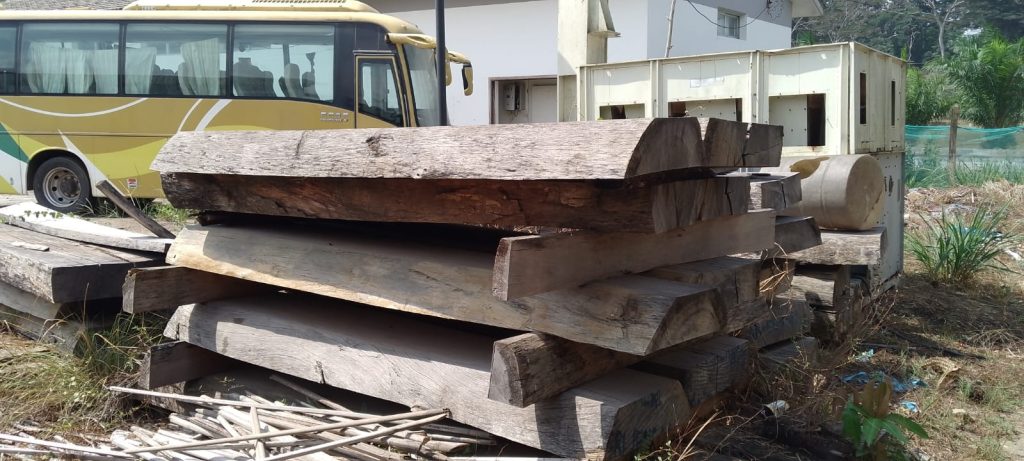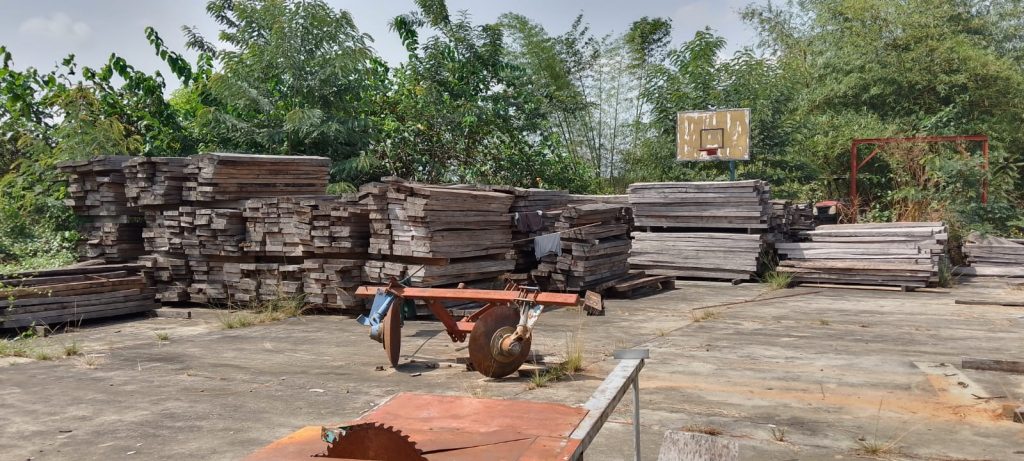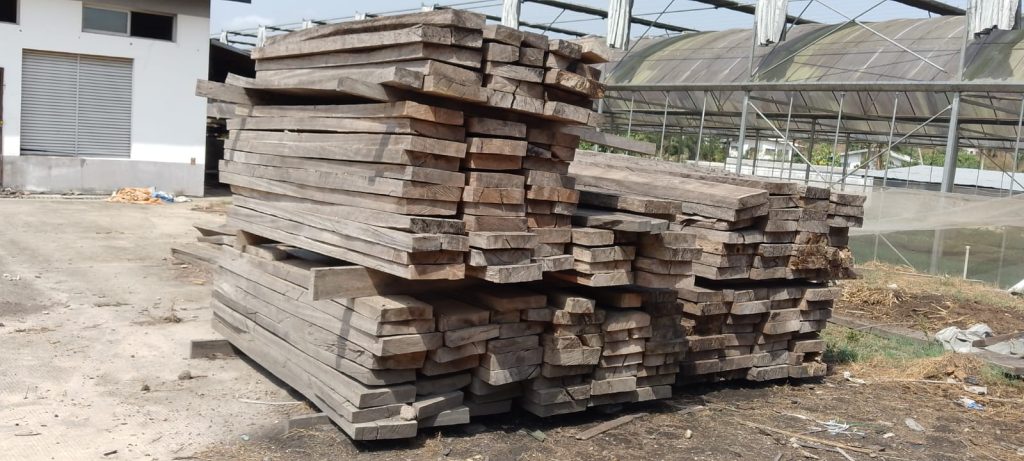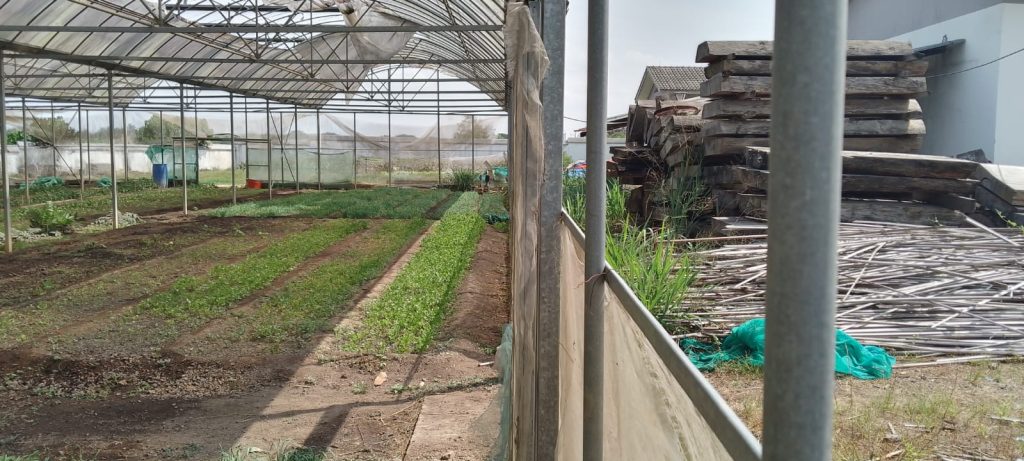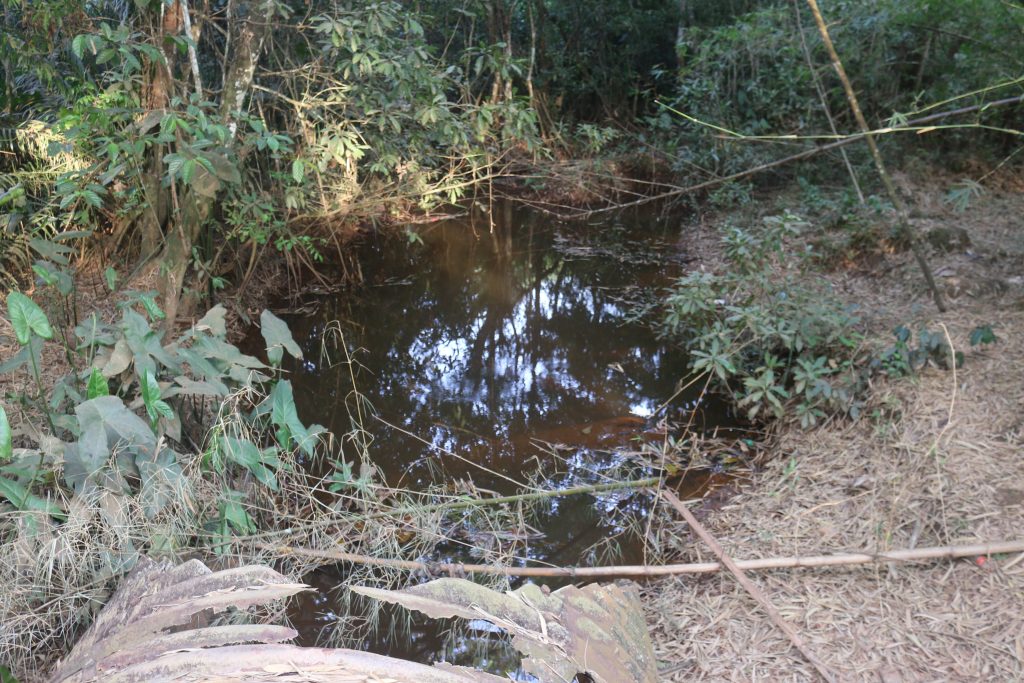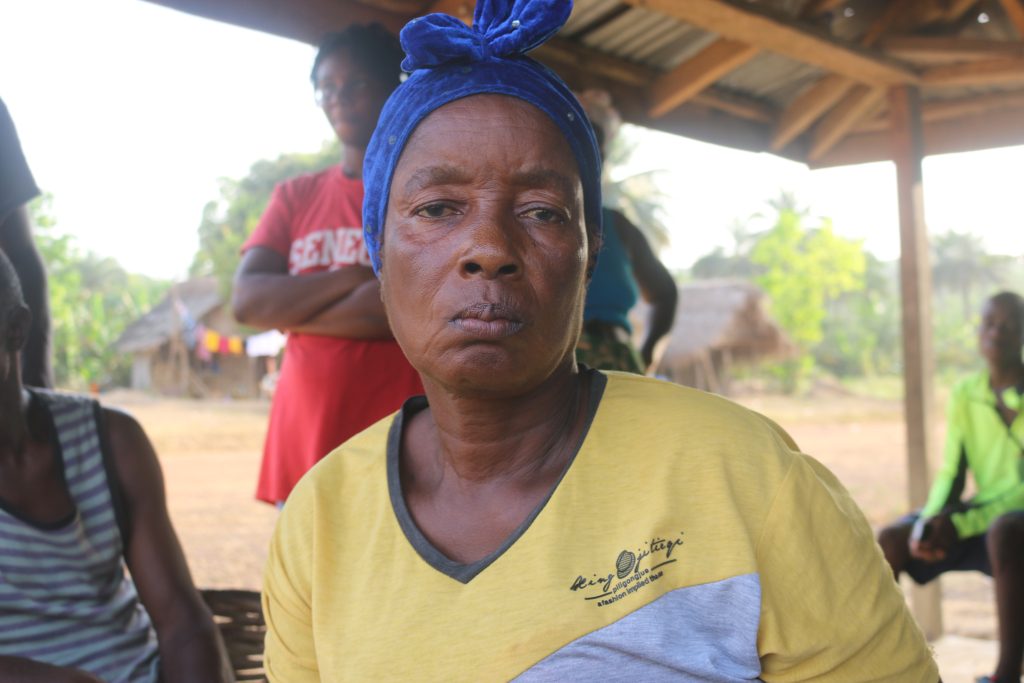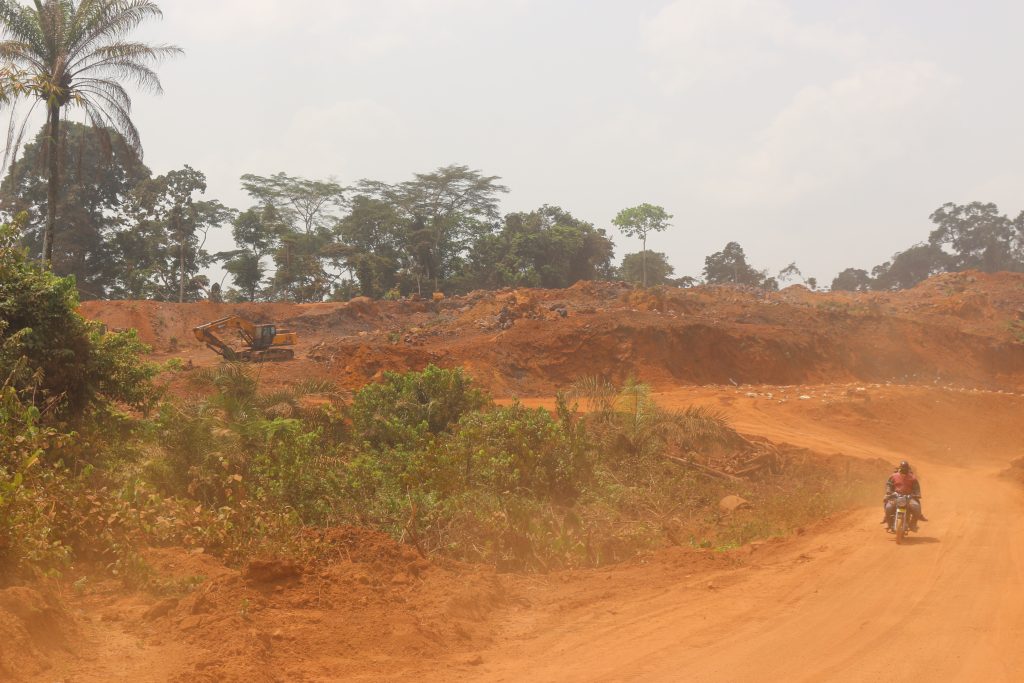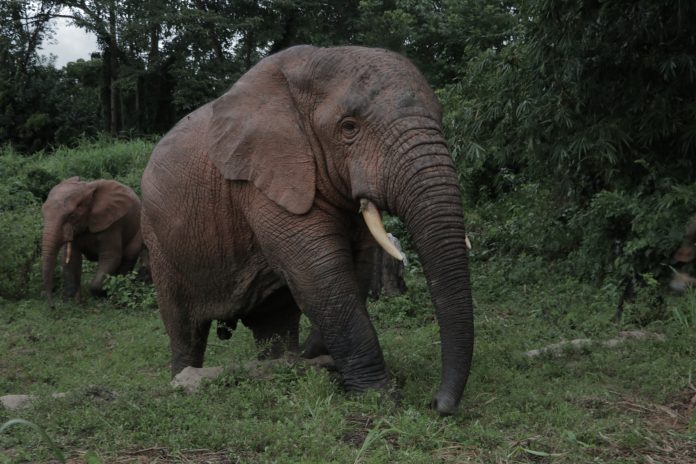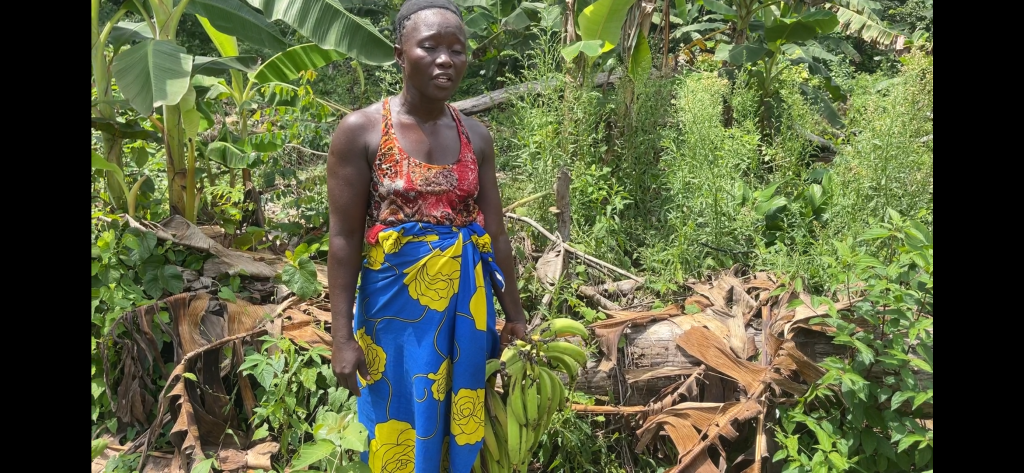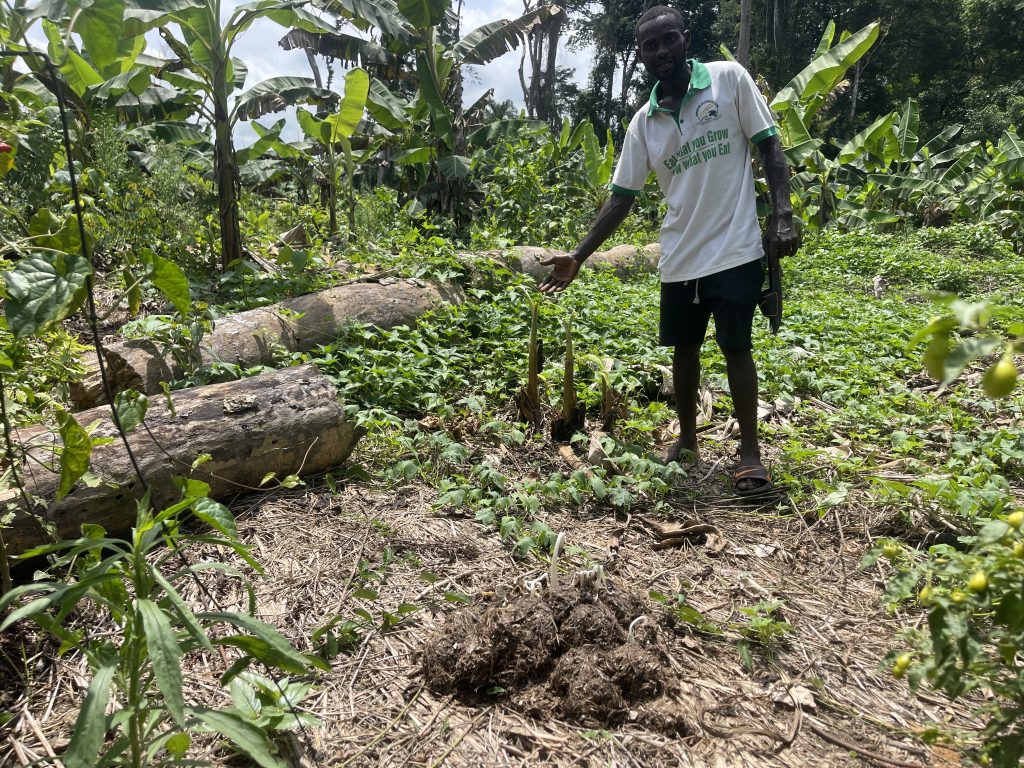Top: Iroko transferred most of the abandoned logs in February this year, one year and four months after they were harvested in the Central Dugbe River Community Forest. The DayLight/Derick Snyder
By Matenneh Keita and Esau J. Farr
KARQUEKPO, Sinoe County – In 2022, Timothy Odebunmi, joined two other Nigerian businessmen to establish Iroko Timber Logging Corporation in July 2021. Odebunmi has 50 percent shares, Samson Odebunmi, his relative, 45 percent, and Akinsiku Arinkan five percent.
The following year, Iroko signed a contract with the Central River Dugbe Community Forest. By October, it began harvesting logs in the 13,193-hectare woodland in Sinoe’s Jaedae District near the Grand Kru border.
Two years on, Iroko has not exported the logs, a violation of the Regulation on Abandoned Logs, Timber and Timber Products.
It is unclear how many logs Iroko has felled. The FDA record shows 523 logs. However, Bartee Togba, the head of Central River Dugbe leadership, puts the number to about 700. Videos posted to Iroko’s Facebook page in July last year show workers hauling logs with an earthmover.
Under the regulation, logs are abandoned when unattended between 15 and 180 working days after felling, depending on their location.
The DayLight videotaped hundreds of logs on an open field in Dioh’s Town on the Greenville-Karquekpo route. Sources, including residents of that community, said the logs were only transferred there in February this year.
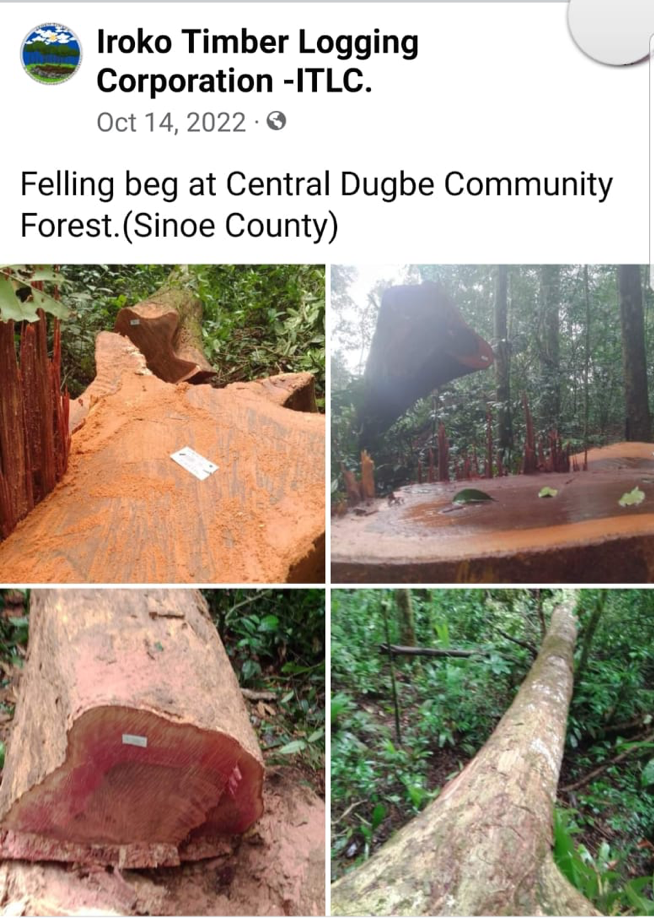
Togba said some of the logs were still in the forest and wanted to document them. “I’m going to put the forest guards together… to carry them in the forest and record all of [that] information on those abandoned logs,” Togba said in an interview at his house in Karquekpo. He did not return queries on his findings after the interview despite repeated phone conversations.
The FDA has taken no concrete steps to deter Iroko or any other company from abandoning logs, now a sector normal. Between 2020 and 2023, Managing Director Mike Doryen made several pronouncements, including a public announcement in November last year, but never acted. Recently, current Managing Director Rudolph Merab toured the southeast, highlighting the issue but has done nothing more.
The FDA record shows that the agency approved Iroko’s permit to export 349 logs this May, something Iroko said it was “finalizing” soon. However, in an interview with The DayLight, William Pewu, FDA’s technical manager for community forestry, said the regulator would investigate.
“If Iroko has abandoned logs or woods, we are not aware of that,” Pewu said. “We have to first of all validate whether the information we are getting [is authentic]. We have to do a follow-up.”
Pewu’s assertion of being unaware of Iroko’s abandoned log situation is not backed by facts. The DayLight published an investigation on the issue more than a year ago. The FDA did not return questions the newspaper asked regarding Iroko at the time.
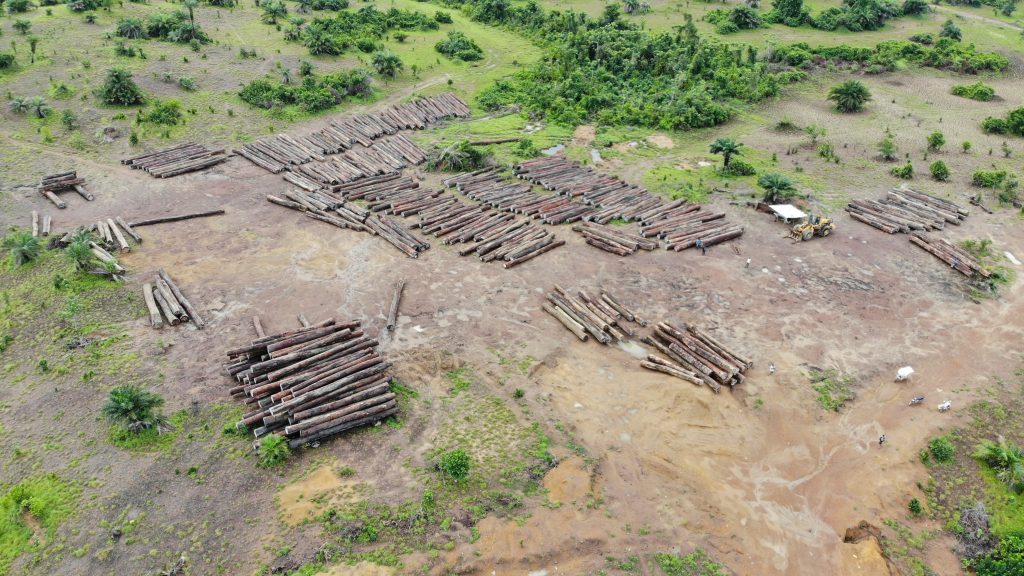
The FDA must investigate a piece of abandoned log information, according to the regulation, and publish its findings. The regulation further mandates the agency to seize and auction said logs with a court warrant, following several public notices. Penalties for the offense include fines and contract forfeiture.
‘[Overvalued]’
Iroko’s struggles suggest it cannot conduct logging activities in Central River Dugbe.
It claims it owns eight earthmovers and leases nine others, according to one official document. However, it has been seen with only a few equipment in the last three years. An old machine at the log yard and two in Polay Town, one of the eight communities that own the forest.
The document shows Iroko targets 100,000 hectares of forests in the region in 15 years but it has grappled to manage just 13,193 hectares in three.
Iroko plans to run a centralized log yard near Greenville, from where it would produce about 50,000 cubic meters of logs each harvesting season. Yet, its current log yard is smaller than a football pitch. Reporters did not have to fly a drone high to capture all of the logs, a solitary earthmover and a makeshift security booth last month.
Togba said Iroko’s capacity troubles were glaring. He said the company had been “[overvalued],” accusing the FDA of not assessing Iroko’s financial and logistical capacities.
“The law says before FDA gives the company permit…, they should first of all view their equipment. They must know the company has an equipment that is up to standard but these things were not done,” Togba said.
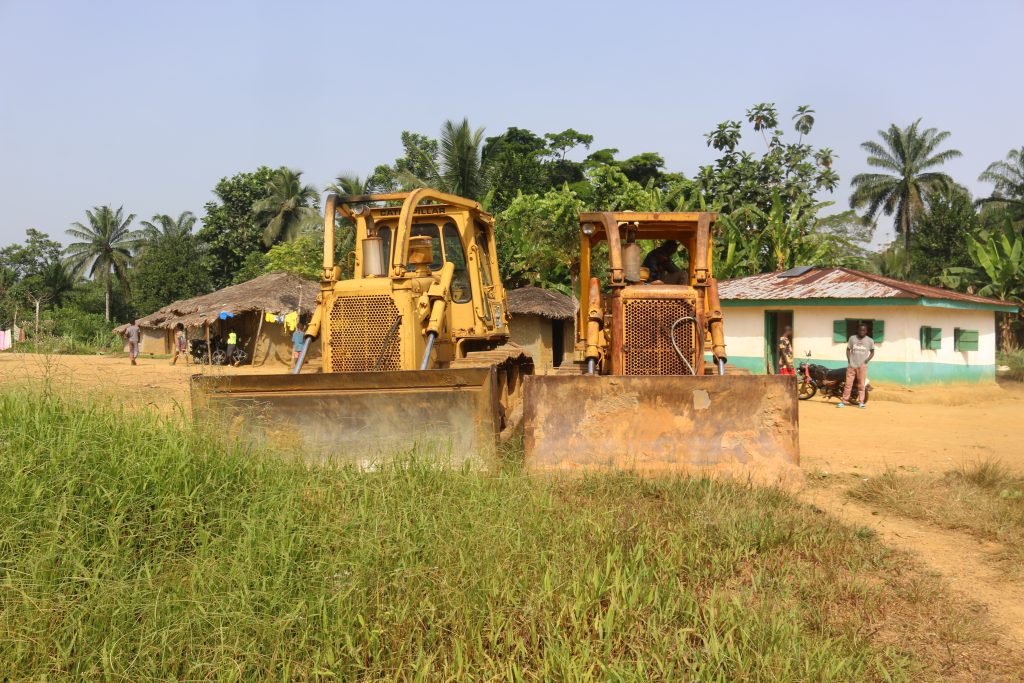
“What I suspect in their operation is there is no active equipment. Looking at the poor arrangement based on the equipment that brought all of that mess, the company doesn’t have the financial capability to operate,” Togba added.
Official documents appear to support Togba’s comments. It took Iroko barely two weeks to get prequalified for logging in Liberia. It registered as the company on July 7, 2021, and was prequalified on July 23, 2021, according to its article of incorporation and prequalification certificate.
Iroko’s situation mirrors that of Akewa Group of Companies, another Nigerian firm in which Odebunmi has 20 percent shares. Beginning in 2008, Akewa failed to live up to each one of its four contracts in Grand Bassa, Margibi and Grand Cape Mount. It is locked in an arbitration proceeding with the Margibi community over locals’ forest benefits.
Iroko dismisses indications of its capacity issues. “We are a business entity and we work with positives and challenges of the business environment,” Iroko said in emailed responses to The DayLight’s queries. It would not make specific comments on challenges.
‘Null and void’
The FDA could have prevented the situation had it disapproved of Iroko’s contract, due to Odebunmi’s shares in Akewa. Back in 2019, Akewa was fined US$1,000 forging another company’s tax clearance to acquire a contract in Grand Cape Mount County.
Approving the Iroko-Central-River-Dugbe contract—with Odebunmi as a shareholder—violates the Regulation on Bidder Qualifications. The regulation debars shareholders of companies that commit any acts of public dishonesty for five years. Only three years had passed when the FDA approved Iroko’s contract.
Iroko said Odebunmi was unaware of his shares in Akewa and “has never signed any document to that effect.” It said Odebunmi did not know of Akewa’s tax fraud.
But those statements are not backed by facts. Odebunmi has owned a fifth of Akewa’s shares since 2010, through two amendments, Akewa’s legal documents show. A recent review of the forestry sector by the U.S.-based Forest Trends also captures Odebunmi as an Akewa shareholder.
Speaking on its illegal approval of Iroko’s contract, the FDA said it did not have a list of debarred companies and individuals, and that it needed a court action to enforce debarment. The FDA further said it could not enforce the qualification regulation because Iroko did not bid for Central River Dugbe. Like Iroko’s, the FDA’s assertions are not backed by facts.
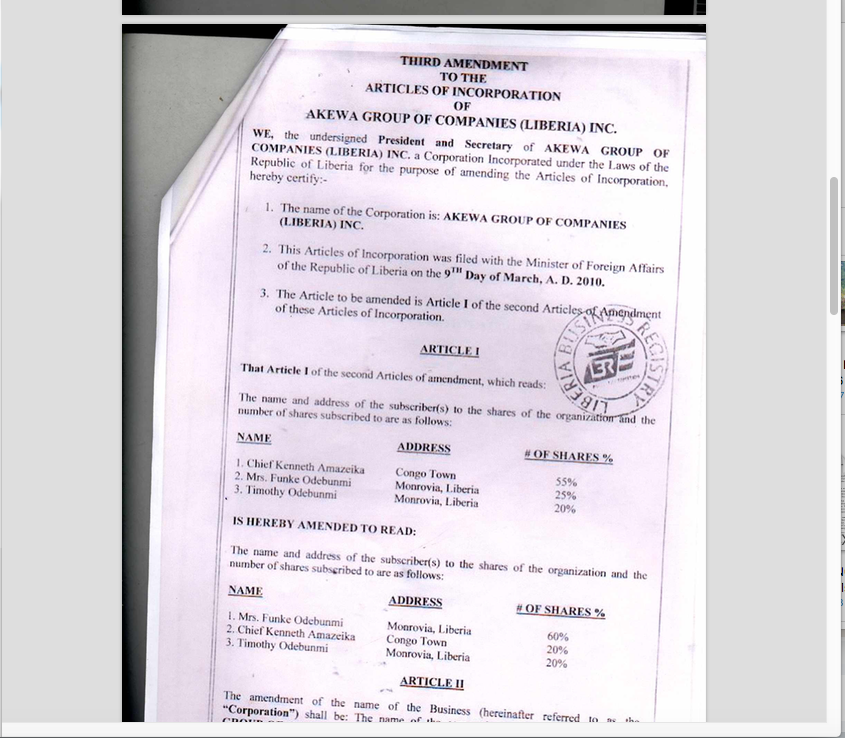
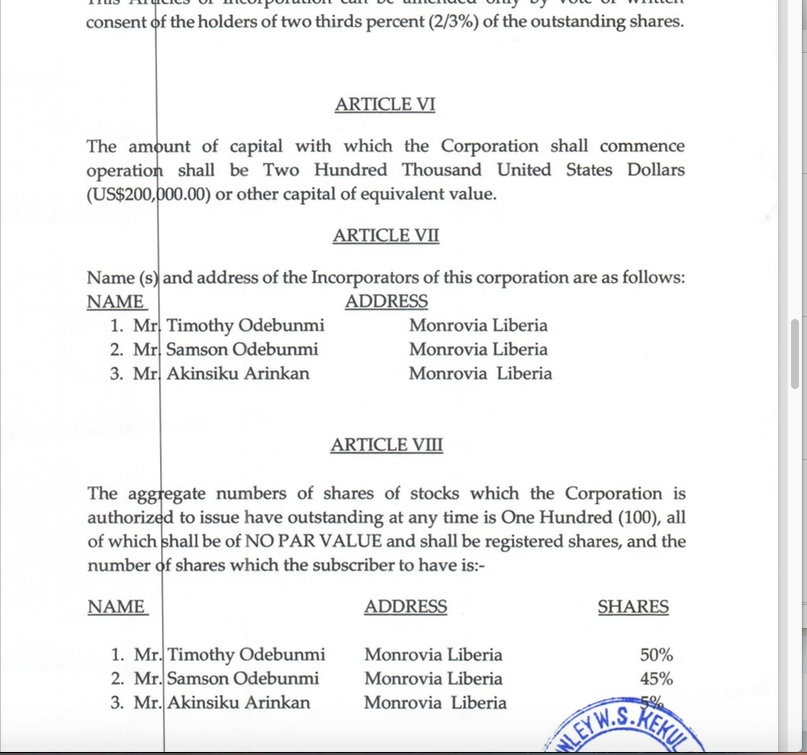
Though the qualification regulation mandates the FDA to form a list of debarred persons, other provisions on eligibility are not subject to the list. For instance, the Yes-or-No Prequalification Criteria requires a firm seeking prequalification not to have any shareholders connected to forgery.
The FDA’s claim that it could not apply the regulation because Iroko was not bidding for a contract contradicts its actions. The qualification regulation does not only cover bidding. It also contains requirements for the rights to conduct forestry activities in Liberia.
Moreover, the FDA applied such a provision by warning Iroko against perjury, which has nothing to do with the debarment list.
“Any statement made under oath to the panel that is found to be false renders this certificate null and void,” Iroko’s prequalification certificate reads. The three-year document will expire later this month.
This story was a production of Forest and Environmental Journalists (CoFEJ).

